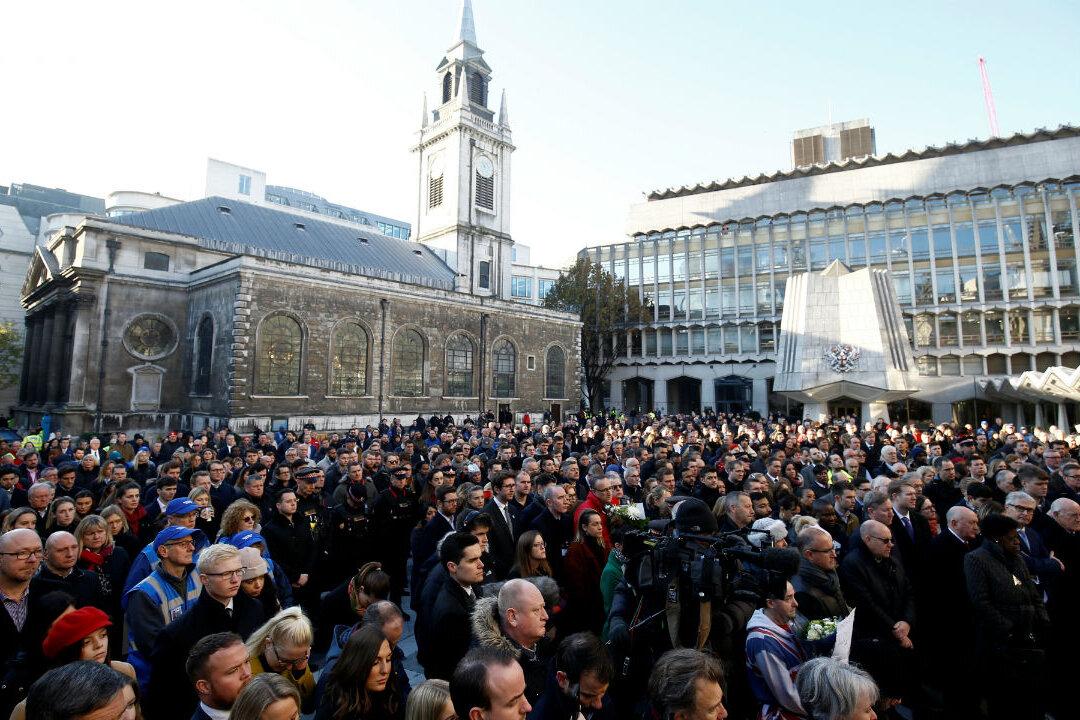LONDON—London held a vigil on Dec. 2 for two people killed near London Bridge by a convicted terrorist who had been released early from prison, an incident that thrust criminal justice to the center of a campaign 10 days before a national election.
Jack Merritt, 25, and Saskia Jones, 23, both former students active in a program on prisoner rehabilitation, were killed on Friday when Usman Khan went on the rampage with kitchen knives at a conference about the program beside London Bridge.





